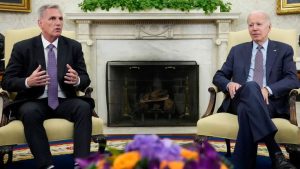What Is Moderate In Politics
In politics, “moderate” typically refers to a person, group, or stance that is neither extreme nor radical in their views or actions. Moderates often advocate for pragmatic and balanced approaches to governance, seeking compromises and solutions that bridge different ideological perspectives. They may prioritize practicality and consensus-building over strict adherence to ideological purity.
In the realm of politics, moderation is a nuanced term that encompasses a commitment to reasoned discourse, compromise, and incremental progress. It stands in contrast to extremism and radicalism, advocating for measured approaches to policy-making and governance. At its core, moderation seeks to bridge divides, foster collaboration, and uphold the common good.
The Concept of Moderation
Moderation, as a political ideology, emphasizes the importance of temperance and restraint in both rhetoric and action. It acknowledges the complexity of societal issues and eschews simplistic solutions in favor of pragmatic, incremental change. Throughout history, moderate political movements have emerged as beacons of stability and progress, steering nations through times of turmoil with steady leadership and a commitment to consensus-building.

Benefits of Moderate Politics
One of the primary benefits of moderate politics is its ability to promote compromise and collaboration across partisan lines. By embracing diverse perspectives and seeking common ground, moderate leaders can forge consensus on divisive issues and enact meaningful reforms. Moreover, moderation fosters stability by tempering the volatility of ideological extremes and mitigating the risk of political polarization.
Challenges to Moderate Politics
Despite its virtues, moderate politics faces several challenges in the contemporary landscape. The rise of extremism and polarization has made it increasingly difficult to find common ground, with partisan divides deepening and ideological rifts widening. Furthermore, critics often deride moderation as a form of complacency, arguing that it lacks the boldness and decisiveness necessary to address pressing societal issues.
Moderation in Policy Making
In the realm of policy-making, moderation entails crafting solutions that appeal to a broad spectrum of stakeholders while balancing competing interests. Rather than pursuing ideologically-driven agendas, moderate politicians prioritize pragmatic, evidence-based approaches that prioritize the common good over partisan interests. This nuanced approach to governance is essential for addressing complex challenges and achieving sustainable progress.
Moderate Leadership
Moderate leaders exhibit a range of characteristics, including pragmatism, empathy, and a willingness to listen to diverse viewpoints. They understand the importance of compromise and collaboration, seeking to unite rather than divide their constituents. Examples of successful moderate politicians abound, from past leaders like Nelson Mandela and Angela Merkel to contemporary figures such as Justin Trudeau and Jacinda Ardern.
The Role of Moderate Voices
In an era marked by increasing polarization and ideological extremism, moderate voices play a crucial role in fostering constructive dialogue and bridging partisan divides. By advocating for moderation in public discourse, these voices help counteract the toxic rhetoric of extremism and promote a more inclusive and respectful political climate.
Moderation vs. Compromise
It is important to distinguish between moderation and compromise, as they are not synonymous. While compromise involves making concessions to reach a consensus, moderation encompasses a broader commitment to reasoned discourse and temperance in all aspects of governance. Moderates seek to find common ground without sacrificing their core principles, striving to uphold the values of democracy and pluralism.
Critiques of Moderate Politics
Critics of moderate politics often argue that it is ill-suited to address urgent societal challenges, particularly in times of crisis. They contend that moderation can lead to inertia and indecision, preventing governments from taking bold action when necessary. However, proponents of moderation maintain that it offers a pragmatic and sustainable approach to governance that prioritizes long-term stability over short-term gains.
The Future of Moderate Politics
Despite the challenges it faces, there is reason to believe that moderate politics will continue to play a vital role in shaping the future of governance. As the dangers of extremism and polarization become increasingly apparent, there is a growing recognition of the importance of moderation in fostering unity and progress. By adapting to contemporary challenges and embracing new technologies and methodologies, moderate movements can chart a course toward a more inclusive and effective political landscape.

Conclusion
In conclusion, moderation stands as a foundational principle of effective governance, offering a pathway to navigate the complexities of political discourse with balance and pragmatism. By embracing moderation, we can bridge partisan divides, foster collaboration, and uphold the common good for the betterment of society as a whole.
FAQs
What is the difference between moderate and extremist political ideologies?
Moderate ideologies prioritize compromise and collaboration, whereas extremist ideologies tend to be more rigid and uncompromising.
Can moderate politicians still enact meaningful change?
Yes, moderate politicians can enact meaningful change by forging consensus on divisive issues and implementing pragmatic, evidence-based policies.
How does moderation contribute to political stability?
Moderation fosters political stability by mitigating the risks of extremism and polarization, promoting compromise and consensus-building.
Are there any historical examples of successful moderate leaders?
Yes, historical figures like Nelson Mandela and Angela Merkel are often cited as examples of successful moderate leaders who steered their nations through times of turmoil with steady leadership and a commitment to compromise.
What are some strategies for promoting moderation in political discourse?
Promoting active listening, respectful dialogue, and a willingness to engage with diverse viewpoints are essential strategies for fostering moderation in political discourse.










